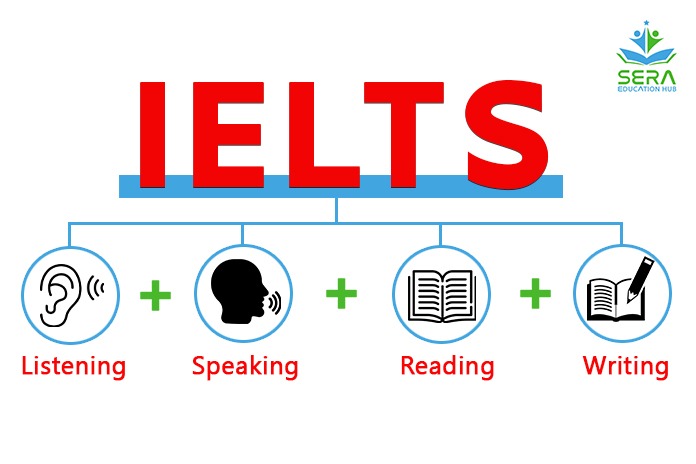
IELTS
IELTS, or the International English Language Testing System, is a widely recognized English language proficiency test. It is designed to assess the language skills of individuals who intend to study, work, or migrate to English-speaking countries. IELTS evaluates candidates in four key language skills: Listening, Reading, Writing, and Speaking. The test is available in two versions: Academic, for those seeking admission to academic institutions, and General Training, for those pursuing non-academic training or immigration purposes. IELTS is accepted by numerous institutions and organizations globally, making it a common choice for individuals aiming to demonstrate their English language proficiency.
More Information About IELTS
Here are more details about the IELTS (International English Language Testing System)
1. Test Format:
- IELTS is divided into four sections: Listening, Reading, Writing, and Speaking.
- The Listening and Speaking sections are the same for both the Academic and General Training versions, while the Reading and Writing sections differ.
2. Listening:
- The Listening test consists of four sections with a total of 40 questions.
- It assesses the ability to understand spoken English in various contexts, such as conversations and monologues.
3. Reading:
- The Reading test also has four sections with a total of 40 questions.
- For the Academic version, passages are taken from books, journals, magazines, and newspapers. The General Training version includes texts from notices, advertisements, company handbooks, and other sources.
4. Writing:
- The Writing test includes two tasks for both versions.
- In the Academic version, Task 1 requires candidates to describe visual information, and Task 2 involves writing an essay on a given topic. In the General Training version, Task 1 involves letter writing, and Task 2 requires writing an essay.
5. Speaking:
- The Speaking test is a face-to-face interview with a certified examiner and is the same for both versions.
- It consists of three parts: introduction and interview, long turn (where candidates speak on a topic for 1-2 minutes), and a discussion.
6. Scoring:
- Each section (Listening, Reading, Writing, and Speaking) is scored on a band scale from 1 to 9.
- The overall band score is the average of the four individual scores.
7. Test Duration:
- The total test time is 2 hours and 45 minutes.
- The Listening, Reading, and Writing tests are conducted on the same day, while the Speaking test may be conducted on the same day or up to seven days before or after the other tests.
8. Test Availability:
- IELTS is available in over 1,600 test locations in more than 140 countries.
9. Accepted Worldwide:
- IELTS scores are widely accepted by universities, employers, and immigration authorities in English-speaking countries, including the United Kingdom, Australia, Canada, and the United States.
10. Preparation:
- Test takers often prepare for the IELTS exam by practicing with sample questions, taking practice tests, and familiarizing themselves with the test format.
It's essential for candidates to check the specific requirements of the institutions or organizations they are applying to, as different institutions may have different score requirements.